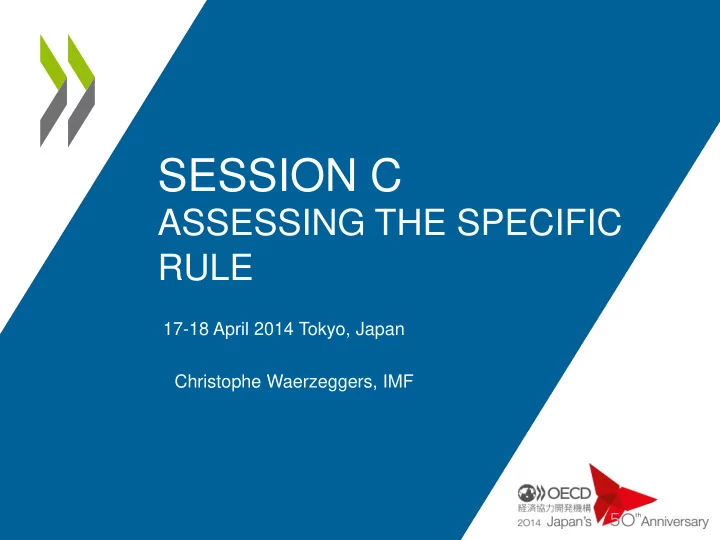

SESSION C ASSESSING THE SPECIFIC RULE 17-18 April 2014 Tokyo, Japan Christophe Waerzeggers, IMF
Context = B2B cross-border supplies of services and intangibles As a rule, and irrespective of their place of taxation, these supplies should not raise net VAT revenue in any jurisdiction involved Determining their place of “taxation” therefore a misnomer, instead focus is on neutrality 2
Country A Country B A B Country A and/or Country B may tax, but whoever taxes will have to give tax back Guidelines: no tax in Country A (exempt with credit, zero rate); OR tax in Country B (reverse charge, or A to register); OR no tax (no reverse charge if B entitled to full ITCs) In B2B context place of taxation therefore effectively means place of tax credit/refund 3
Guidelines prescribe outcomes or results, not legal designs or methods Destination principle ∴ taxation in country of consumption , determined by customer location (= Main Rule), unless this “doesn’t lead to an appropriate result” (= Specific Rule(s)) IMF drafts typically follow ‘New World’ not EU model, using iterative instead of categorization approach Not all VATs have direct refund mechanisms or liberal registration policies, thus rely on cross-border rules to achieve neutrality Two common “Specific Rules” found outside EU model: 4
(1) Presence of a person (C), to whom the services are rendered / delivered , in the jurisdiction of the supplier Country A Country B A B ? C 5
(2) Place of (effective) use or enjoyment and/or consumption of services (e.g., TV broadcasting) Country A Country B Broadcast Co Individual Pay TV subscribers 6
(2) Problems with place of (effective) use or enjoyment (e.g., advertising) Country A Country B Marketing Co Global Co Local ? Licensee Local media Viewers/Readers/Listeners 7
Recommend
More recommend